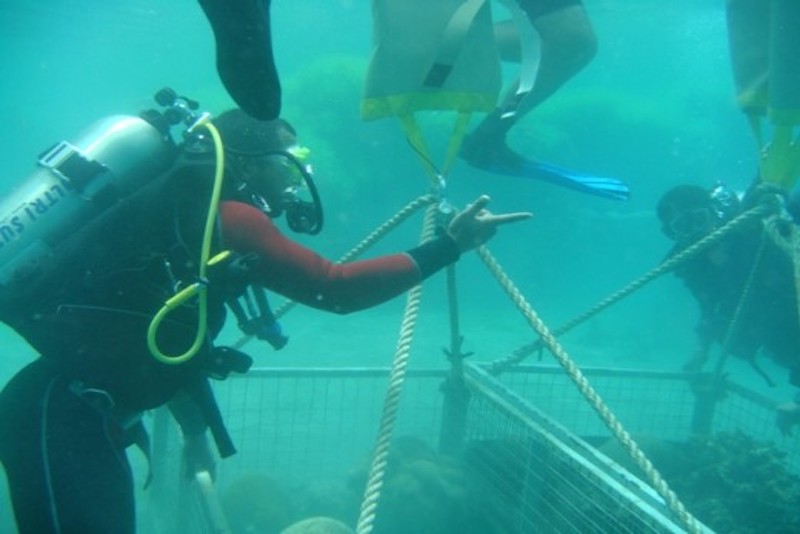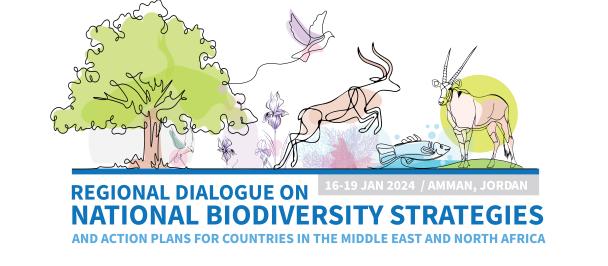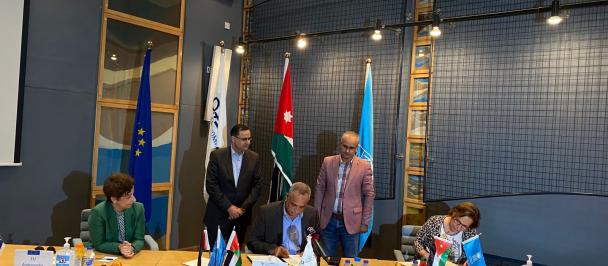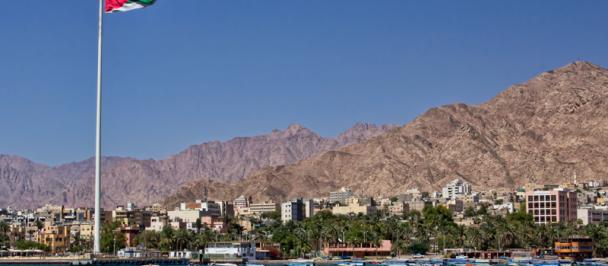Team members from marine park transferring the collected coral from the new port area into the receipt sites within the marine park, June 6,2012
The most significant feature of Jordan’s marine environment is the coral reef ecosystems. Reefs in Jordan are among the most threatened in the Red Sea because they are shallow, easily accessible, and adjacent to a major population and industrial centre.
Following the recommendations made by the Aqaba Special Economic Zone Master Plan, local authorities in Aqaba decided to close port operations at the Main Port, and to relocate the services to the southernmost tip of coastline in an area locally known as Dirreh Bay.
Dirreh Bay, is considered one of the most important diving sites in the Gulf of Aqaba, because of its uniqueness in terms of coral cover and biodiversity.
Highlights
- The translocation started with a focus on establishing a nursery structures for coral nubbins collected from the donor sites in addition to use some of the collected coral for the rehabilitation of a number of already degraded sites along the coast.
- The nursery structures made of a galvanized steel painted with anti-fouling and anti-rust paints and deployed in front of the marine park's visitor centre.
- The Park established a new cave diving site covered with the medium size relocated corals. This gives the recreational scuba divers a chance to enjoy a new diving experience while exploring the marine life.
- It is also leading to a new "diving specialty" in Aqaba that is generating a lot of attention and throughout the scuba diving community.
- So far, the coral translocation reported good survival due to the implementation of global standards and guidelines.
- The Regional Organization for Environmental Conservation of the Red Sea and the Gulf of Aden, recognised the project by ranking it second in the "Environmental Excellence Award" in January 2013.
- Due to the knowledge gained in the project, the park is now assigned responsibilities related to the "conservation" of marine and coastal environment.
- Recently, it became a key partner in a new project to expand the oil terminal which implies also a translocation of coral communities.
According to the environmental studies, relocation of the main port to Dirreh Bay, will result in the destruction of approximately 40,000 m2 of high quality coral reefs.
In recognition of the importance of coral habitat and in order to mitigate such impact, ASEZA in cooperation with UNDP launched the translocation of coral communities project from the new South Port site to Aqaba Marine Park in mid May 2012, with a total budget of 100,000.
Prior to the translocation process, experts assessed both; the donor site (to define the coral priority species to be relocated) and the receiving sites (to verify suitable environmental conditions).

 Locations
Locations





